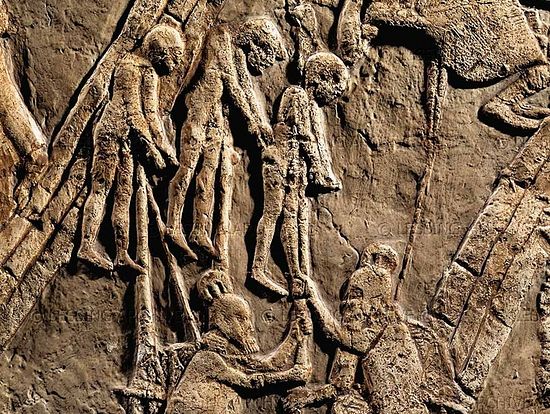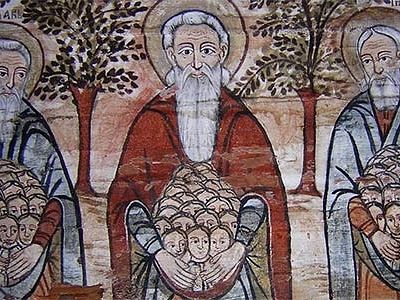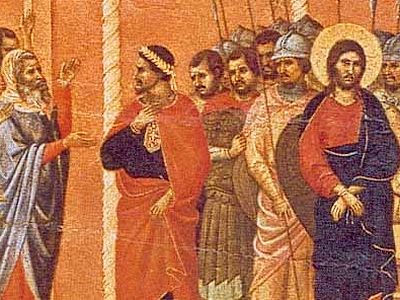Back in my distant Soviet childhood, when I knew next to nothing about the Bible, I knew a little about the story of Jonah—a man who spent three days in the belly of a whale. In some children’s book I read that a whale feeds on plankton, its mouth is made in such a way that it is practically impossible for a man to find his way into it, and the priests are only making fools of the working class.
In the original there is no whale, only a very large fish, but that is not the point. This book is not at all about ichthyology. This is a book about God and people.
Jonah is an ancient Israelite prophet to whom God has given an extremely unpleasant mission. He is supposed to go to Nineveh in order to preach repentance to the inhabitants of this enormous city: “Only forty more days, and Nineveh will be destroyed!” (cf. Jonah 3:4). God wants to give the Ninevites one last chance.
But Jonah does not want this at all. What if they suddenly repent, are saved, and escape God’s punishment for their sins? No, the prophet is not a mean man. He is simply a man, similar to us.
Nineveh was the capital of the Assyrian Empire. The Ninevites were not just pagans; they were mortal, sworn enemies of the people of God. Archeology has preserved Assyrian bas-reliefs depicting acts of the Assyrian army with stomach-turning boastfulness: captives on spikes, walls hung with flayed human skins, women and children driven into slavery under their conquerors’ whips. The Assyrians ruled by inspiring terror, and terror was something they truly knew how to inspire.
Therefore, the prophet does not at all want them to repent. God’s wrath has already been way too slow in coming. Nineveh will be destroyed? Good! The sooner the better! Finally! Let them reap what they have sown, let the same horror reign in their streets as what they brought to other cities! No one will have any regrets over this—least of all Jonah!
So, when God sent Jonah to give the Ninevites their last chance, the prophet did not even want to go. Only after a series of adventures is he finally forced to go to the hated Ninevites and preach God’s message. A miracle occurs: The cruel-hearted pagans repent. Their kings command that Men and cattle were clothed with sackcloths, and cried earnestly to God; and they turned every one from their evil way, and from the iniquity that was in their hands, saying, Who knows if God will repent, and turn from his fierce anger, and so we shall not perish? (Jonah 3:8-9).
God accepted their repentance: And God saw their works, that they turned from their evil ways; and God repented of the evil which he had said he would do to them; and he did it not (Jonah 3:10)
The prophet was beside himself with disappointment. The evildoers were saved from the punishment they long deserved! But God says to him:
And shall not I spare Nineveh, the great city, in which dwell more than twelve myriads of human beings, who do not know their right hand or their left hand; and also much cattle? (Jonah 4:11).
So it turns out that God is the Creator and Preserver of even these vicious pagans, the terrible enemies of His people. He loves them, pities them, and desires their salvation. He is not only the God of Israel—He is God of the entire world. Jonah had great difficulty accepting this message, and people today also have trouble with this. People constantly talk about God as if He were “the God of our folk”, a tribal God.
There is a concept in religious studies called genetheism. This is the worship of one god—the God of the tribe. This god, who grants our tribe military victory over other tribes, brings the increase of our cattle, the rain over our fields. He is a strong ally who we can call upon to provide for our own interests. Other tribes may have other gods, and they are no less real; but this particular god is ours. Naturally, our god has no concern for the members of other tribes.
Monotheism is an entirely different view of the world. There is only one true God, Who has made heaven and earth, the Master and Guardian of absolutely everything visible and invisible. He is God, Who supports the existence of and nourishes our tribe—but not only ours. He is God, who preserves all people—both our tribal allies, and our enemies, and even those tribes we know nothing about.
The God of the Bible is not the God of one group of people—of our tribe, our party, our community. He is the God of all nations and all peoples, including (and this is something we just have to accept!) those enemy tribes and parties. Yes, many do not know Him and do not worship Him, but they are still His creations, about whom He cares, and whose eternal salvation is His constant yearning. They may be terrible, they may be repulsive, we may even have very serious and just grievances against them. But they are His precious creation, for whom He seeks salvation and life.
The Old Testament is filled with displeasure on the part of the people of God: When? When will God finally sock it to those cursed pagans? We have no moral grounds for looking down upon the people of that era—the wish that God would become a weapon of our wrath and strike our enemies has not gone anywhere. And it is easy to become enemies, who in the eyes of His people deserve wrath—configurations of conflicts and alliances change unpredictably, and it is impossible to predict whose righteous struggle people will sympathize with, and who the world will be angry with tomorrow.
Therefore Christ says, love your enemies. Because God loves them. No, it is not easy to look at people we hate (and have a justifiable reason for this hatred) through the eyes of God, Who created them and preserves them. This is even frightening—for we are used to the world we are living in, while we are called to live in an entirely different one. It is a break with how people always act, with what they consider right and even sacred. Ye have heard that it hath been said, Thou shalt love thy neighbour, and hate thine enemy. But I say unto you, Love your enemies, bless them that curse you, do good to them that hate you, and pray for them which despitefully use you, and persecute you; That ye may be the children of your Father which is in heaven: for he maketh his sun to rise on the evil and on the good, and sendeth rain on the just and on the unjust (Mt. 5:43-45).
But believing in God the Creator of heaven and earth, of all things visible and invisible, means precisely this. Our enemies are His beloved creations.




